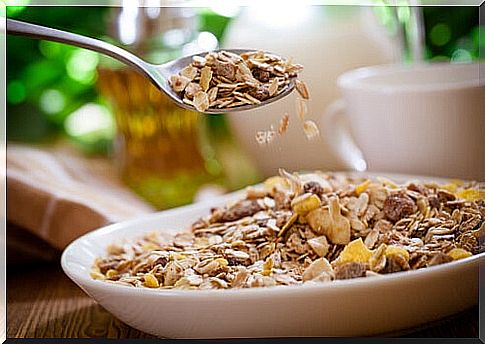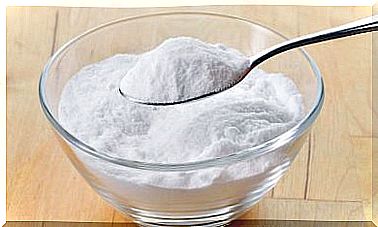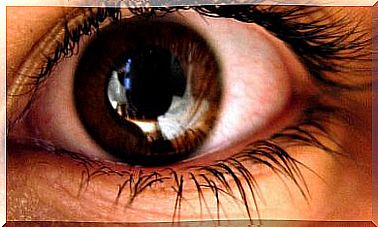5 Signs You’re Eating Too Much Fiber
Have you ever wondered if you are eating too much fiber? Although it seems silly, this question makes a lot of sense. It is common to hear that fiber intake is essential for good health, but what about the opposite statement?
Like any excess, eating fiber in an exacerbated way can be unhealthy. You have to be very careful in this regard, since the consequences are usually not very well known.
Signs that you are eating more fiber than you should
To know if you are eating too much fiber, you just have to think about the type of food you eat. How many times a week do you eat them? Have you ever consulted with the endocrinologist?
It is important to pay attention to the following signs.
1. Gases and inflammation
Eat the right amount Fiber helps eliminate gas and reduce inflammation. Ironically, excess consumption can cause these same symptoms, according to this study carried out by a team from Hospital La Fuenfría (Madrid).
If you have recently changed your diet to a healthier one, you may suffer from these problems at first. Then they should disappear. However, e In case the problem does not subside, you should analyze what you are eating and consult with your doctor.
Your body needs moderation and variety in the foods you eat. So focusing on just one group can be very damaging. It is wrong to think that excess fiber compensates for a poor diet.
2. Loose stools and diarrhea

Another symptom is the presence of loose stools and diarrhea. These symptoms appear because food does not stay long enough in the digestive tract.
Remember that food needs a certain decomposition process in the stomach. Only if the food remains the necessary time is achieved:
- A correct elimination of toxins, by separating the nutrients from what your body does not need.
- The correct absorption of nutrients. Your gut needs to take its time to absorb every nutrient that food provides. Too much fiber can cause many of these nutrients to be lost in the process.
Meals must be sufficiently balanced. This implies that you have to include protein, fiber and carbohydrates. Each food needs its digestion time to be used correctly. The function of the fiber is to eliminate what you do not need without risks and without discomfort.
It may interest you: Recommendations for a good digestion
3. Constipation
It may be hard to believe, but it can lead to constipation. This is because excess fiber in the stomach can plug up the digestive tract.
This problem is very common when the fiber is not accompanied by a sufficient amount of water. For this reason, a daily intake of between 2 and 3 liters a day is recommended, as this study by a team of researchers from the Spanish Society of Basic and Applied Nutrition assures us .
Make sure that the fiber you eat comes from whole wheat bread, fruits or vegetables. The water must be natural, without sugars or additives.
4. Dehydration
As already mentioned, consuming water insufficiently can lead to constipation. However, even if you do not have this symptom, you can tell that there is an excess of fiber through the signs of dehydration. The reason is that your body needs water to process it.
If you do not receive it in the necessary amount, it will take the reserves you have. When you run out of them, you will feel very thirsty and your skin will look dry. One way to know if you are dehydrated is by identifying if you are constantly thirsty.
Avoid soft drinks in these cases, and always try to drink water or, in the worst case, natural fruit juices, without added sugars or sweeteners.
5. Weight gain
Perhaps you are eating too much fiber with the intention of losing weight. However, you should know that if you do it the wrong way, you will only achieve the opposite effect. For fiber to help you shed pounds, it must speed up your metabolism. This only happens when there are no excesses, as these can prevent defecation.
A bad strategy is to eat a large bowl of high-fiber cereal before bed. Physical activity will be zero at night and your digestive tract will not properly digest this substance.
If your current fiber intake is close to zero, go slowly. The first week you can consume 10 grams of fiber each day. The second week you can increase to 15 grams. By the third week, 20 grams will be adequate. A) Yes, your body will adapt to the fiber and work with it to benefit your health.
Avoid eating too much fiber and choose the right one

Many people choose commercial cereals as the first option. The problem is that these bring too many preservatives and added sweeteners that are not healthy for your health. Instead, foods like beans, broccoli, whole wheat bread, and papaya are natural sources of fiber.
Try to eat a balanced diet and drink enough water. With these two recommendations, and adding some sport to the equation, l o You will maintain a healthy weight in a natural, easy and practical way.









